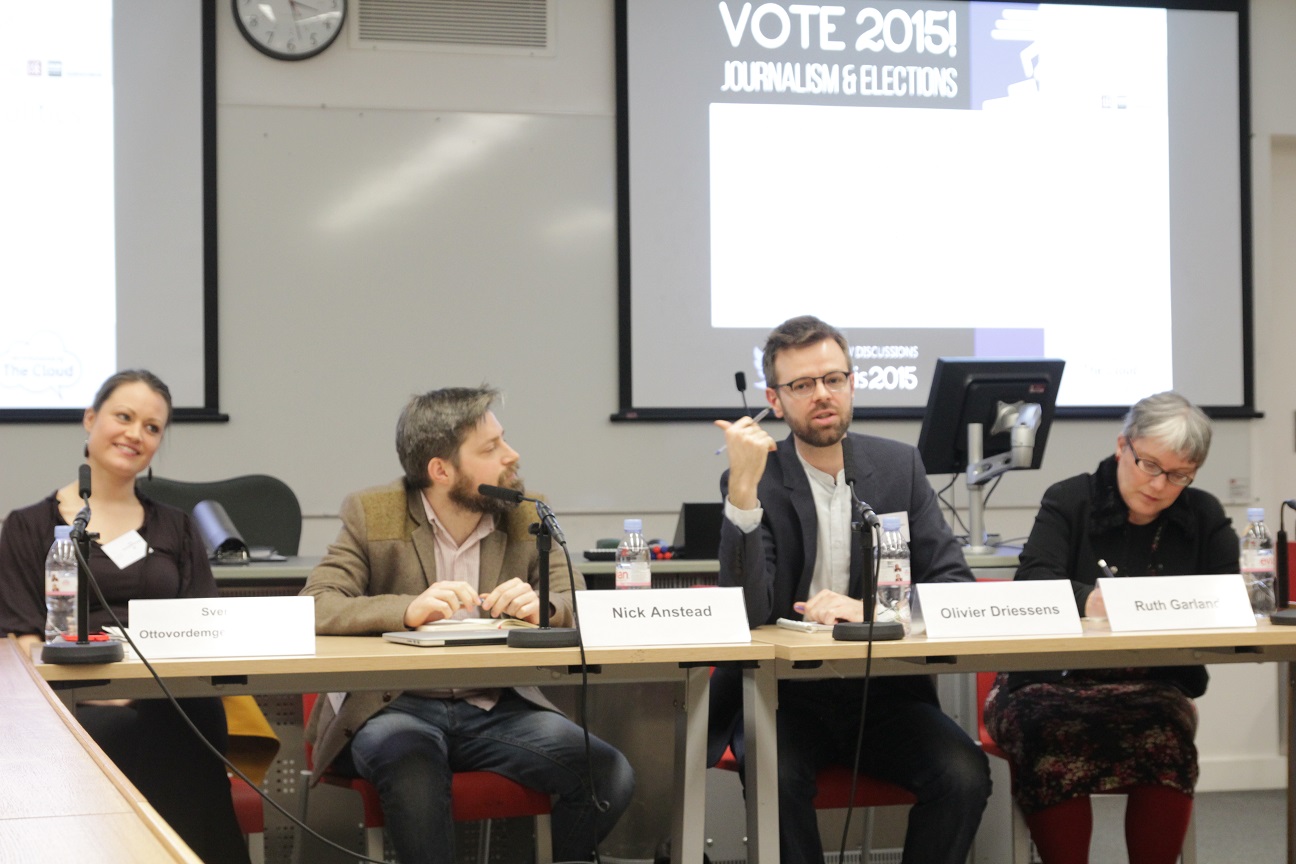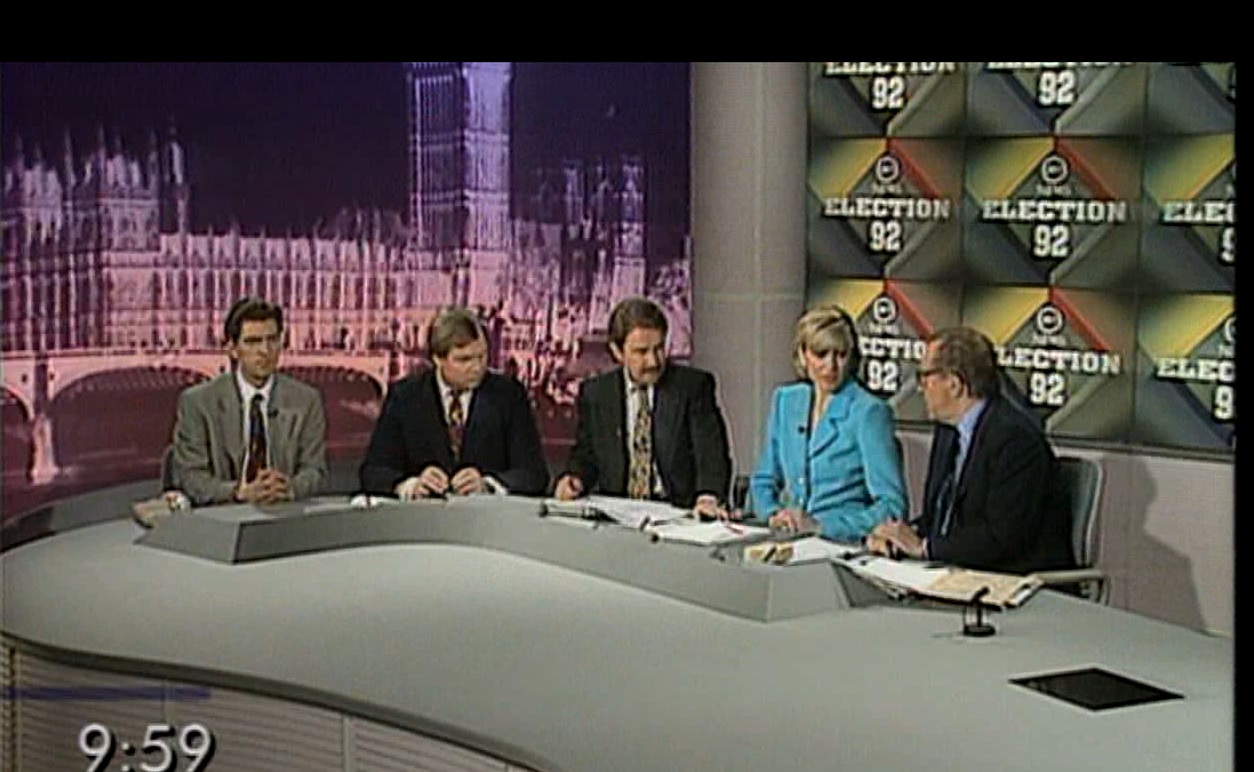LSE MSc student John Ray on Adam Boulton’s keynote speech at the Polis 2015 Conference, 27 March 2015 chaired by Charlie Beckett.
The Polis 2015 journalism conference kicked off with Adam Boulton’s keynote speech ‘2015: A Post-TV election?’, in which he presented a montage of media nostalgia; television clips to illustrate the change in television from an era of ‘histograms’ to all-encompassing entertainment where the profile of the presenter often matches the individual that they’re covering.
Boulton let the footage speak for itself while he briefly narrated in between items. At one point he played clips of David Cameron and Ed Milliband, in their clashingly styled kitchens, doing interviews that “seemingly mattered”. But behind the contrasting interiors, there was, Boulton argued, emptiness; the artifice of television had overwhelmed its substance.
Boulton’s key point was that television remains an important medium, but that there is an ethical way to conduct television political news, determined by whether the ‘interests of the people’ are being served.
This claim is similar to the one levied by LSE Media and Communications professor Lilie Chouliaraki in her book The Spectatorship of Suffering, which asks “under which conditions is it at all possible for the media to induce displays of global care for people we know nothing about and will never meet?”.
Chouliaraki and Boulton’s concerns lie at opposite sides of the spectrum – Boulton looks whether television adequately serves the British public, and Chouliaraki whether television adequately serves the suffering – but both point out that television is not intrinsically good or bad, but must be wielded in an ethical manner in order to operate in a way that serves the interests of both the viewers and the subjects.
The “woeful” day-out interview was Boulton’s key example of unethical contemporary political journalism. He argued that they create tedium and ‘insidious intimacy’, where there is supposed to be accountability and spontaneity. David Cameron standing in his kitchen making seemingly off-the-cuff and ‘casual’ pre-planned statements doesn’t serve anyone but David Cameron and the broadcasters – even if the particular statement backfires spectacularly. This represents a crisis in the way that political journalism is conducted. It fosters antipathy and draws the ‘elite’ class further from the voters they are supposed to be accountable to.
The point of televised politics, Boulton argued, was to facilitate informed choice, something that pre-planned pieces serve to undermine. “We don’t serve the viewers by getting too close to the politicians; we need to keep our distance.” What generates this proper distance between the politicians and the electorate is what Boulton believes TV does best: “spontaneous, live, political programming”. Spontaneity serves to keep politicians on their toes, and live audience Q & A’s and televised debates give politicians an arena in which to engage with the public and each other in a way that has meaning and carries risk. The electorate wants the media to be a conduit through which they can make politicians vulnerable to their will; that’s what these programs provide.

Boulton’s argument is largely sound, but the idea that informed electoral choice is the principal mandate for commercial political broadcasters is idealistic. They have no responsibility to anyone but their shareholders and the (murky at best) ethical standards that moderate them. While broadcasters like Sky might nix the “walk and talk” interview so as to appear responsible and serious as a brand, it’s hard to believe that they really privilege what the British public believes or knows above the pursuit of profit. This isn’t necessarily a bad thing; Sky News has crafted an economic model in which responsibility and ethical praxis are good for their bottom line … but we shouldn’t pretend they’re doing this out of the goodness in their heart.
This article is by LSE MSc student John Ray






